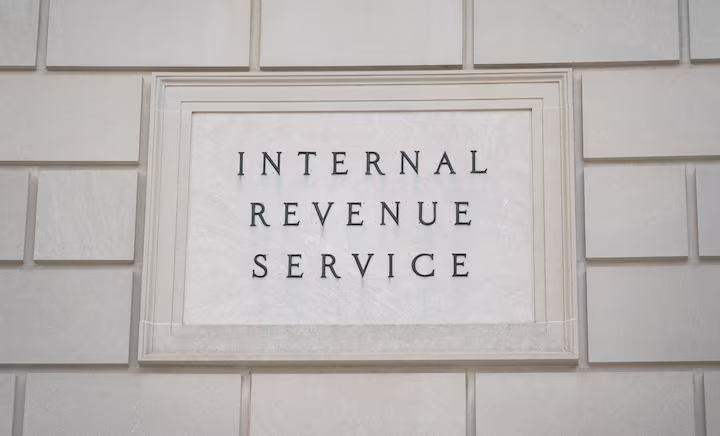IRS Will Let Pastors Endorse Politicians from the Pulpit—this groundbreaking shift signals a major change in how religious speech and politics intersect. In a pivotal move, the Internal Revenue Service (IRS) has officially recognized that clergy can endorse political candidates during worship services without jeopardizing their church’s tax-exempt status. This re‑interpretation of the Johnson Amendment reflects sweeping legal, political, and cultural implications—putting additional spotlight on religious freedom, election law, and the separation of church and state.
What the IRS Just Did
The IRS submitted a joint filing in the U.S. District Court in Texas—alongside the National Religious Broadcasters (NRB) and two Texas churches—arguing that the Johnson Amendment’s ban on endorsing candidates shouldn’t apply to typical pulpit sermons or communications that occur through faith‑centered channels. In simple terms: if a pastor endorses a candidate during a Sunday service, that speech is treated like a private family talk—not public campaigning.
This marks the IRS’s first explicit stance permitting political endorsements from the pulpit. While the original 1954 Johnson Amendment prohibited churches from endorsing candidates to maintain tax-exempt status, enforcement has generally lagged—this filing officially formalizes that evolving stance.
Why the Shift Now?
- Legal challenge & lawsuit: The NRB and two Texas churches sued the IRS in 2024, claiming the Johnson Amendment violated their First Amendment rights of religion and free speech. The IRS’s filing responds directly to that suit, seeking a consent order that settlements the case.
- Trump-era influence: Former President Donald Trump frequently opposed the Johnson Amendment and signed a 2017 executive order urging lenient enforcement. His advocacy pressured the IRS to codify what until now had been just an informal policy.
- Judicial agreement ahead: By framing candidate endorsements as private speech—“akin to family discussions”—the IRS aims to cement the practice’s legality and appeal for judicial approval.
Together, these factors increased momentum and public scrutiny—making this the moment to redefine enforcement.
A Blow to Church-State Separation?
This shift raises alarm among scholars, nonprofits, and critics:
- Erasing the wall: Opponents argue this change gnaws at the church-state separation by inviting overt partisan influence within religious spaces nymag.com.
- Transparency concerns: There’s fear churches could funnel tax-deductible contributions toward candidates with little oversight or disclosure.
- Calls for legislative action: Critics contend any permanent repeal belongs in Congress, not hinged on one lawsuit or IRS interpretation.
A Pew poll in 2019 even found that 76% of Americans oppose candidate endorsements from the pulpit, demonstrating strong public resistance.
Political Ramifications Ahead
- 2026 midterms impact: With this carve‑out in place, expect more churches explicitly backing candidates in the next election cycle, especially in conservative and evangelical communities.
- Partisan pulpit surge: Historically cautionary Black churches and newer conservative megachurches may seize this moment. Already, many congregations have been testing boundaries under events like “Pulpit Freedom Sunday”.
- Monitoring required: Nonprofits like the National Council of Nonprofits and American Promise insist the IRS limit must remain narrow—or formal oversight mechanisms introduced—to prevent tax-subsidized political campaigns from thriving in religious settings.
The Bigger Picture
- Johnson Amendment origins: Established in 1954 by Senator Lyndon B. Johnson, the amendment aimed to keep tax-exempt organizations—including churches—out of elections.
- Enforcement history: Though enforcement is rare—only a few churches have lost exemptions since 2000—the IRS maintains its right to revoke status when partisan campaigning occurs. Yet past “Pulpit Freedom Sunday” sermons openly broke rules, generating few actual revocations everycrsreport.com.
- First Amendment at play: The IRS now holds that restricting pulpit endorsements impinges on religious liberty and free speech, reframing these sermons as private acts of faith rather than campaign speech.
Any further tightening or rollback likely requires congressional legislation—or a Supreme Court review. Until then, the IRS has redrawn the line.
Conclusion
The IRS’s new interpretation firmly declares that pastors may now endorse political candidates from the pulpit—and retain their 501(c)(3) status. This development, born from legal challenges and evolving enforcement, reshapes religious freedoms and election law. As the 2026 midterms approach, expect more churches to test these limits, prompting closer scrutiny from watchdogs, lawmakers, and the public.
Subscribe to trusted news sites like USnewsSphere.com for continuous updates.





